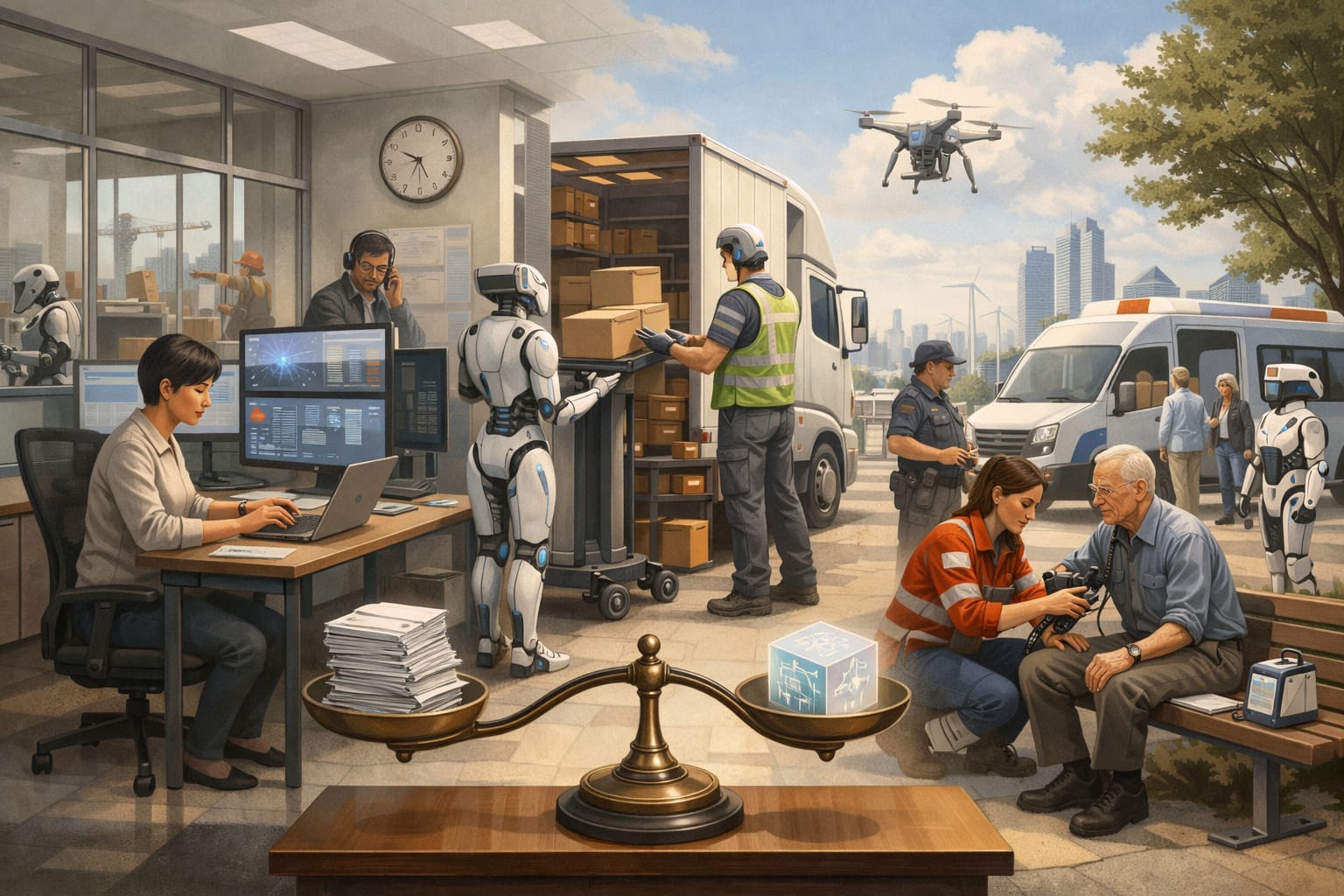Type: Article -> Category: AI Healthcare
How AI is Transforming the Medical Industry
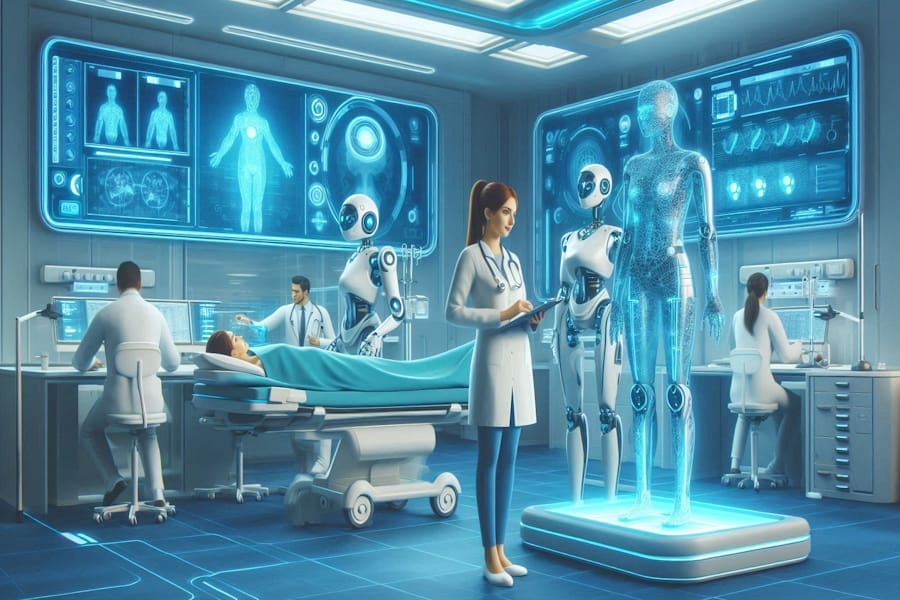
Publish Date: Last Updated: 10th November 2025
Author: nick smith- With the help of CHATGPT
Revolutionizing Healthcare with AI:
Artificial intelligence (AI) is rapidly changing the landscape of healthcare, driving innovations that improve patient outcomes, streamline clinical processes, and enhance the overall efficiency of medical systems. From early diagnosis to personalized treatment plans and even administrative efficiency, AI is poised to revolutionize how the medical industry operates. In this article, we’ll explore the key ways AI is contributing to the transformation of healthcare and its potential for future advancements.
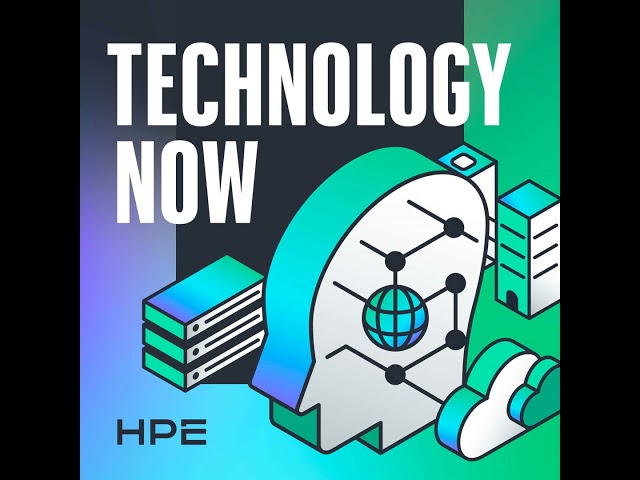
Can AI be used to improve patient experiences?
YouTube Channel: HPE
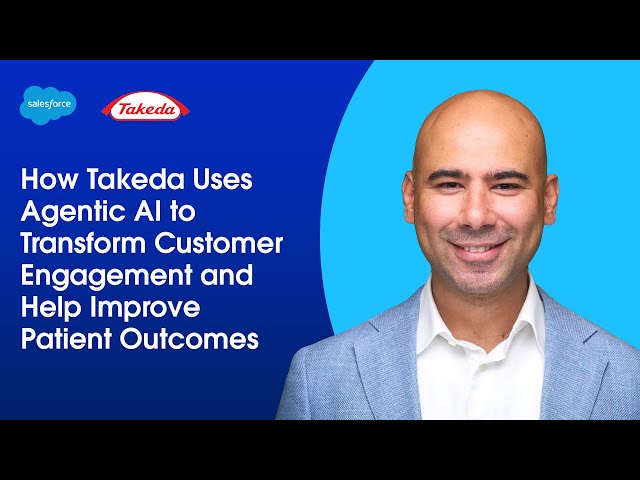
How Takeda Uses Agentic AI to Transform Customer Engagement and Help Improve Patient Outcomes
YouTube Channel: Salesforce

How AI could transform the future of medicine
YouTube Channel: Washington Post Live
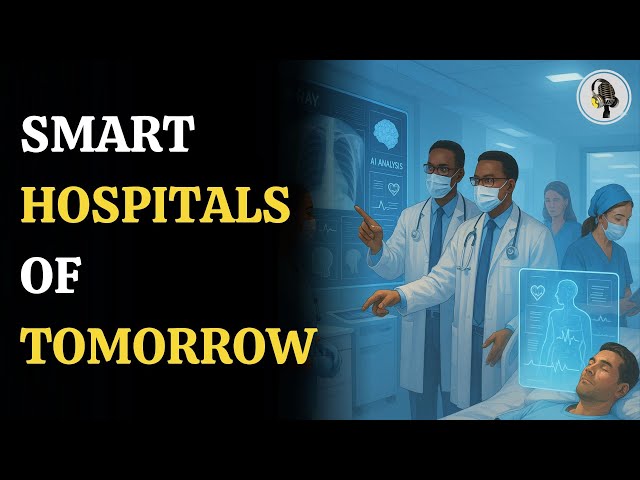
AI in Healthcare: How Hospitals Are Being Transformed | WION Podcast
YouTube Channel: WION
1. Early Diagnosis and Predictive Analytics
One of the most promising applications of AI in medicine is early disease detection and diagnosis. By analyzing large sets of medical data, AI algorithms can detect patterns that are often too subtle for human doctors to notice. This is particularly useful in areas like radiology and pathology, where AI-powered systems can identify abnormalities in medical images, such as early-stage tumors, with remarkable accuracy.
For example, AI can be used in mammography for early detection of breast cancer, or in analyzing CT scans to detect lung cancer nodules. Predictive analytics tools can also analyze patient data and medical histories to forecast the likelihood of developing certain conditions, allowing for preventive measures and earlier interventions.
2. Personalized Medicine
AI has the potential to revolutionize personalized medicine, tailoring treatments to the individual characteristics of each patient. By analyzing genetic data, environmental factors, and lifestyle information, AI systems can help doctors design highly personalized treatment plans that are more effective and result in fewer side effects.
Machine learning models can predict how patients will respond to certain medications, allowing doctors to choose the best course of treatment from the outset. This can lead to faster recovery times and improved patient outcomes, especially in complex cases like cancer treatment, where personalized approaches have been shown to significantly improve survival rates.
3. Drug Discovery and Development
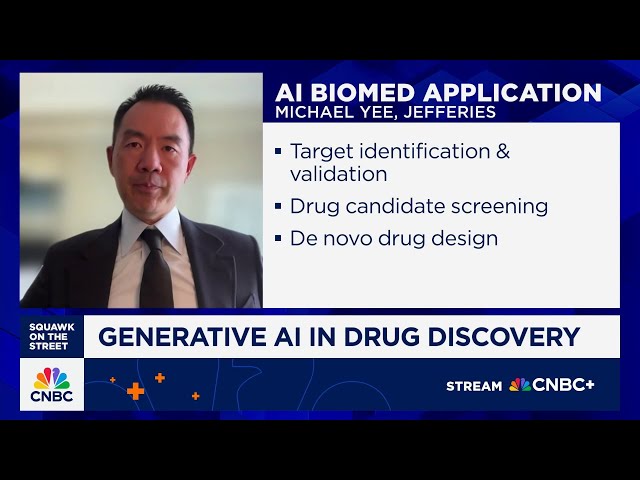
Jefferies' Michael Yee: Drug discovery could be one of the biggest beneficiaries of generative AI
YouTube Channel: CNBC Television

AI-Driven Drug Discovery at Scale with AWS and BioNeMo
YouTube Channel: AWS Partner Network

How machine learning is redefining drug development | Lauren Davis | TEDxMIT
YouTube Channel: TEDx Talks

"AI-Powered Transformation of Simulations in Drug Discovery”
YouTube Channel: 計算科学eラーニングアーカイブチャンネル
The pharmaceutical industry has long been constrained by the time and cost required for drug discovery. Traditional methods involve years of research, clinical trials, and regulatory approval processes. AI can significantly accelerate this timeline by simulating how different compounds interact with biological systems, identifying potential drug candidates more efficiently.
AI-driven algorithms can sift through enormous datasets of chemical compounds and predict which ones are most likely to be effective in treating a specific disease. This can reduce the cost of drug development and bring life-saving medications to market faster. AI has already been used to discover new drugs and repurpose existing ones for the treatment of diseases like COVID-19, cancer, and Alzheimer’s.
4. Improving Clinical Workflow Efficiency
AI can also optimize administrative tasks and clinical workflows, reducing the burden on healthcare professionals. Natural language processing (NLP) tools can assist in automating documentation processes, transcribing physician notes, and managing electronic health records (EHR). By automating these time-consuming tasks, AI frees up medical staff to focus on patient care.
Moreover, AI systems can schedule appointments, manage inventory, and predict staffing needs based on historical data. This enhances the operational efficiency of healthcare facilities, reducing patient wait times and improving the overall quality of care.
5. Virtual Health Assistants and Telemedicine
AI-powered virtual health assistants are increasingly being used to provide basic medical guidance, answer patient queries, and monitor symptoms remotely. These AI assistants can help manage chronic diseases by tracking vital signs, reminding patients to take medications, and providing real-time health advice. This not only empowers patients but also reduces the workload of healthcare providers.
Telemedicine platforms, powered by AI, enable remote consultations and diagnostics, making healthcare more accessible, especially for those living in rural or underserved areas. AI can assist in analyzing data from wearable devices and home monitoring systems, allowing doctors to provide timely care without requiring an in-person visit.
6. AI in Robotic Surgery
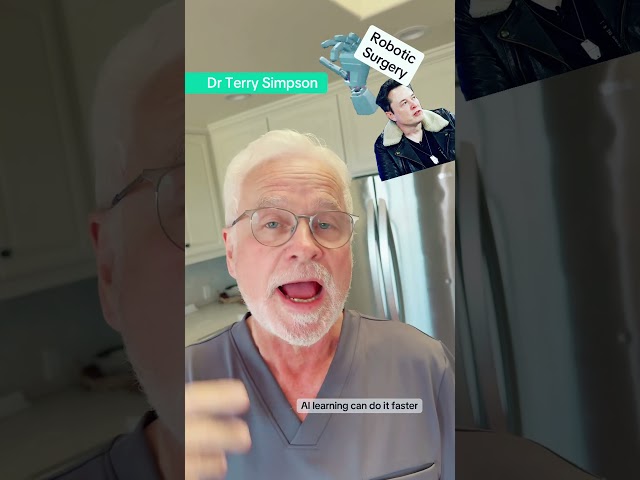
AI and Robotic Surgery: A Thing of the Future? #health #doctor
YouTube Channel: Dr Terry Simpson
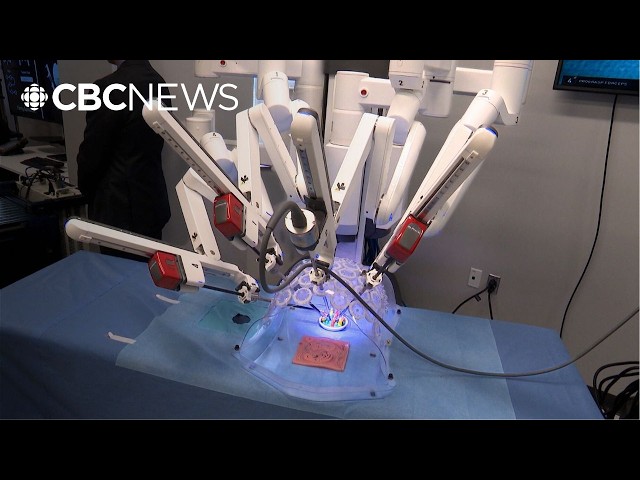
Robotic surgery centre using AI opens at Montreal hospital
YouTube Channel: CBC News

CARE Samvaad: The Robotic Surgery Revolution is here!
YouTube Channel: CARE Hospitals
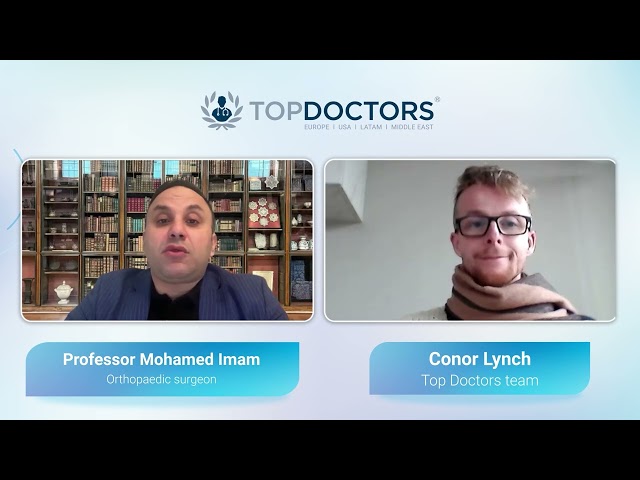
All about robotic-assisted technology in orthopaedic surgery
YouTube Channel: Top Doctors UK
Robotic-assisted surgery, enhanced by AI, has become a cutting-edge tool in medical procedures. AI can enhance the precision of surgical robots, allowing them to perform delicate operations with greater accuracy and minimal invasiveness. AI systems can process real-time data during surgery, making adjustments to ensure optimal outcomes and reduce risks.
For example, AI algorithms can guide robotic arms during laparoscopic surgeries, improving precision in tasks such as cutting or stitching. This can lead to faster recovery times for patients, fewer complications, and shorter hospital stays.
7. Enhancing Medical Research
AI plays a pivotal role in advancing medical research by analyzing large datasets, identifying trends, and generating new insights into diseases. Machine learning algorithms can process vast amounts of medical literature and patient data at unprecedented speeds, identifying patterns and correlations that may not be apparent to human researchers.
AI can also help researchers in clinical trials by predicting which patients are most likely to benefit from new treatments, thereby improving the design and success rates of trials. This can accelerate the discovery of cures and enhance our understanding of complex diseases.
Challenges and Ethical Considerations
While AI brings enormous potential to healthcare, it is not without challenges. Data privacy and security are major concerns, as healthcare data is highly sensitive. Ensuring the ethical use of AI, particularly in maintaining patient confidentiality, will be critical as the technology becomes more widespread.
Another challenge is the potential for bias in AI algorithms. If AI models are trained on biased data, they may produce biased outcomes, potentially leading to disparities in healthcare delivery. Addressing this issue requires transparent and inclusive data practices.
Medical AI Breakthroughs in video from YouTube
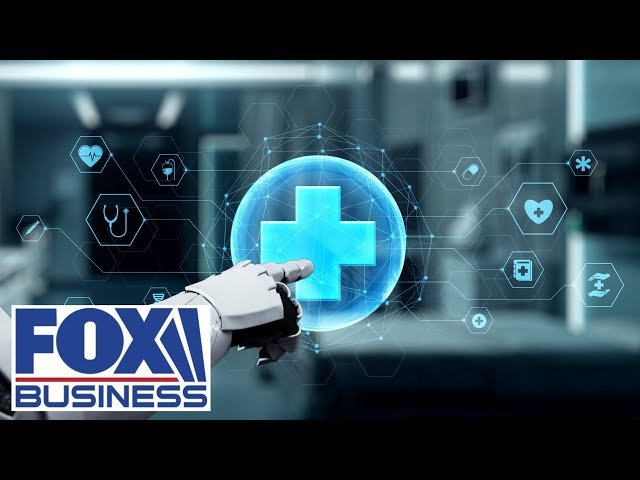
AI medical chatbot Doctronic reportedly discovers mystery illness
YouTube Channel: Fox Business
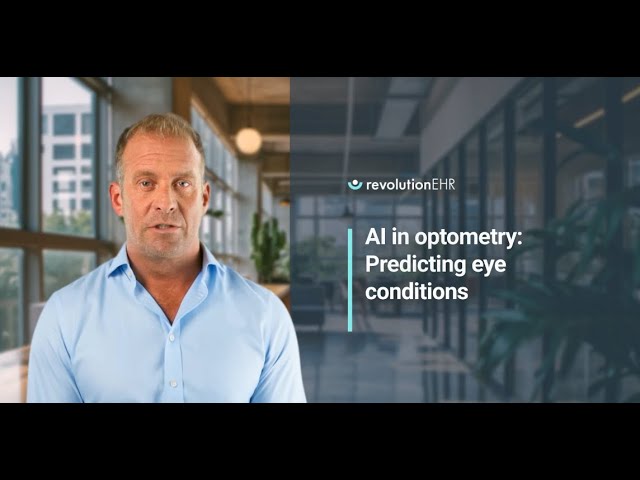
AI News & Trends for Optometry Practices
YouTube Channel: RevolutionEHR
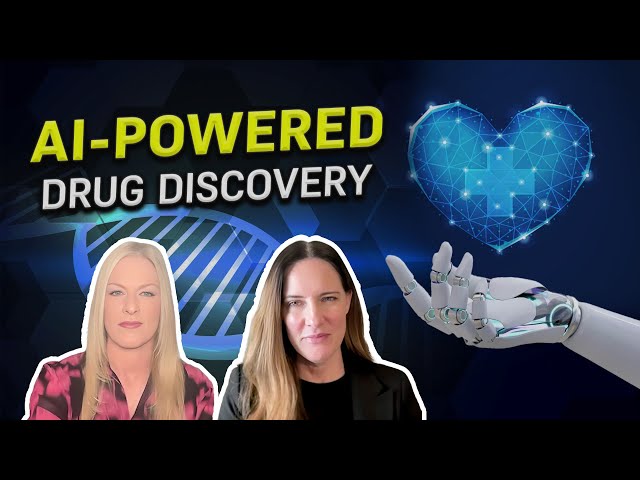
How ImmunoPrecise Antibodies ($IPA) Uses AI to Transform Antibody-Based Drug Discovery
YouTube Channel: Stocks To Watch

Astellas’ AI Drug Discovery Process: Exploring innovation through the eyes of researchers
YouTube Channel: Astellas Pharma
Conclusion
AI is transforming the medical industry, enhancing everything from diagnostics and personalized medicine to drug discovery and robotic surgery. As the technology continues to evolve, the possibilities for improving patient outcomes and streamlining healthcare processes are vast. However, the successful integration of AI into healthcare will require careful consideration of ethical challenges, data security, and the need for ongoing collaboration between medical professionals and AI experts.
Latest AI Articles
AI Questions and Answers section for Revolutionizing Healthcare: How AI is Transforming the Medical Industry
Welcome to a new feature where you can interact with our AI called Jeannie. You can ask her anything relating to this article. If this feature is available, you should see a small genie lamp above this text. Click on the lamp to start a chat or view the following questions that Jeannie has answered relating to Revolutionizing Healthcare: How AI is Transforming the Medical Industry.
Be the first to ask our Jeannie AI a question about this article
Look for the gold latern at the bottom right of your screen and click on it to enable Jeannie AI Chat.
Type: Article -> Category: AI Healthcare







